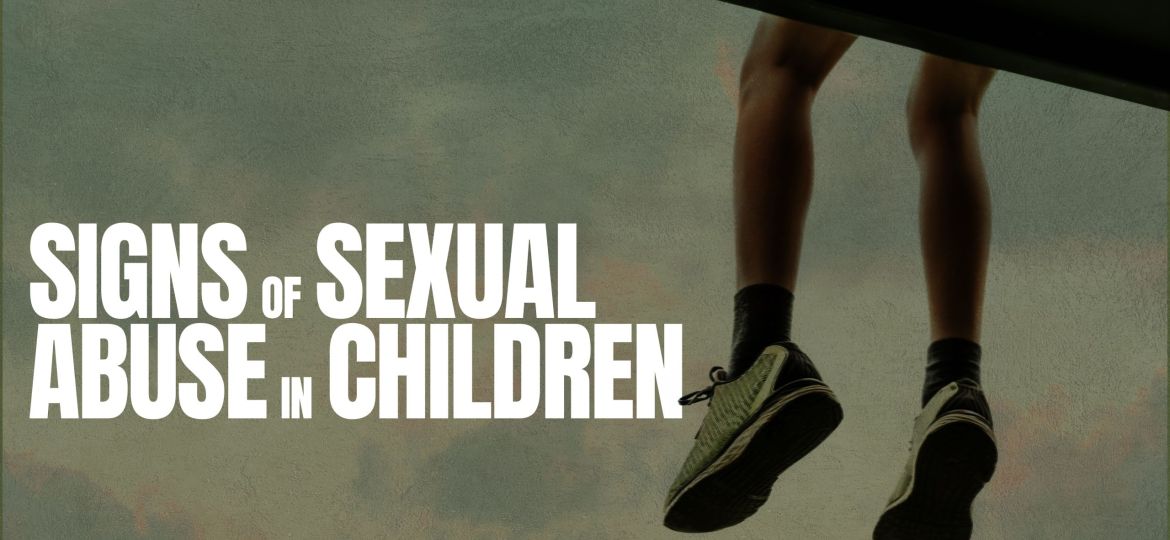Child sexual abuse does not look the same from child to child. In fact, some patterns in one child may be entirely opposite from another. For some children, they show an increased desire to be alone – and in others, they have a fear of being alone.
There is no single blueprint that lays out the signs of sexual abuse of a child. Each survivor experience is different, and how the trauma affects them varies greatly.
Physical Signs of Child Abuse in Both Young Children and Teens
According to the Rape, Abuse, and Incest National Network (RAINN), some signs of sexual abuse in young children and teens are:
- Signs of harm or trauma near a child’s genitals, including bleeding or pain using the bathroom
- Changes in frequency of urination or increased bedwetting
- Any unexplained STIs
- Anxiety, depression, or other issues with mental health
- Changes in hygiene habits
- Unexplained weight gain or loss
- Changes in sleeping habits, such as sleeping too much or not enough
- Changes in eating habits
Emotional Signs of Abuse in Young Children
There are differences in how young children and teens deal with sexual abuse trauma, in a much showing than the signs of physical abuse. According to RAINN, some non-physical signs of abuse in young children include:
- Having a premature or “inappropriate” knowledge of sexual topics
- Not wanting to be left alone with certain adults or caregivers
- Behaving in ways that seem “immature” for their age, like thumb sucking or an increase in tantrums
- Taking steps to avoid taking of their clothes, either to bathe or change
- Exhibiting traits of anxiety or fear
- Having increased nightmares
Emotional Signs of Abuse in Teens
Just like young children exhibit signs of trauma appropriate to their age, so do teens. They could exhibit trauma by:
- Developing mental health disorders, like anxiety or depression
- Increased isolation from family and/or friends
- Increasing in worrying about small or large issues
- Lowering grades and/or academic ambitions
- Expressing disinterest in activities they used to be passionate about, such as sports or extracurricular activities
- Expressing thoughts about self-harm
- Drinking or doing drugs
- Changing self-care habits, like their fashion, appearance, or hygiene
- Increasing discussions about a specific adult
I still have questions. Where are there more resources?
There are still more ways you can become educated on signs of child abuse. There are many sources of information about child abuse, causes and symptoms, such as Psychology Today. Another good source is RAINN, which provides warning signs of abuse to look for in young children, teens, and college-age students.
You should review the signs specific to each age group to develop awareness and increase the odds of recognizing them in a young person you know if the situation arises.
Remember, if something doesn’t seem right, trust your instincts. It is better to ask and be wrong than to let a young person struggle with sexual abuse.
You can seek help through RAINN or call the National Sexual Assault Hotline at (800) 656-4673.
I was abused as a child. What are my options?
Just like there is no single way that trauma manifests itself in child, there is no one path for survivors once they are adults to take action.
For some, it is determining whether or not they were a victim of childhood sexual abuse. Some may know they were abused but are still dealing with the effects of their abuse. Others feel what is best for them is to go to therapy and work through their trauma with a professional. And some may feel they want to take their claims forward, potentially to lawyers, to help prevent the experience they went through to happen to anyone else.
Our firm, Jeff Anderson & Associates, has various resources for survivors to identify their abusers and help survivors take steps towards healing. Anyone can call us for a free and confidential conversation to discuss matters of their case, regardless of how much time has passed since abuse occurred.


